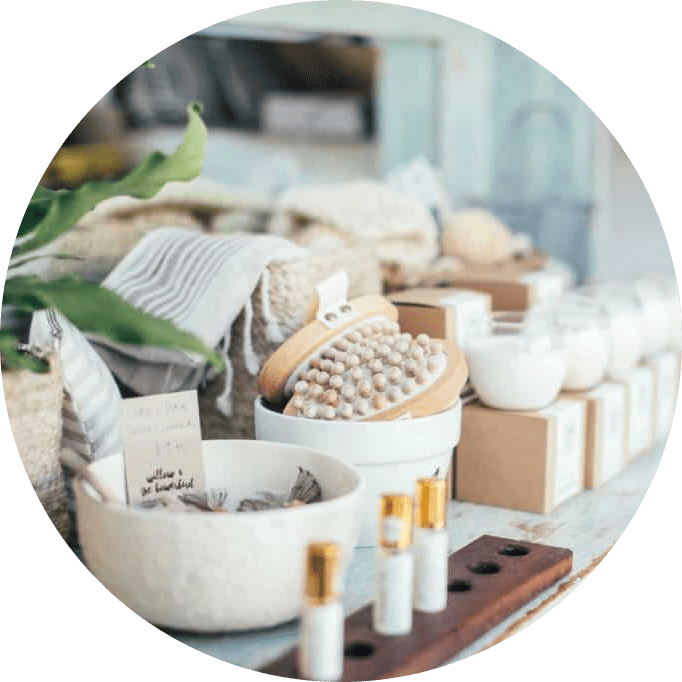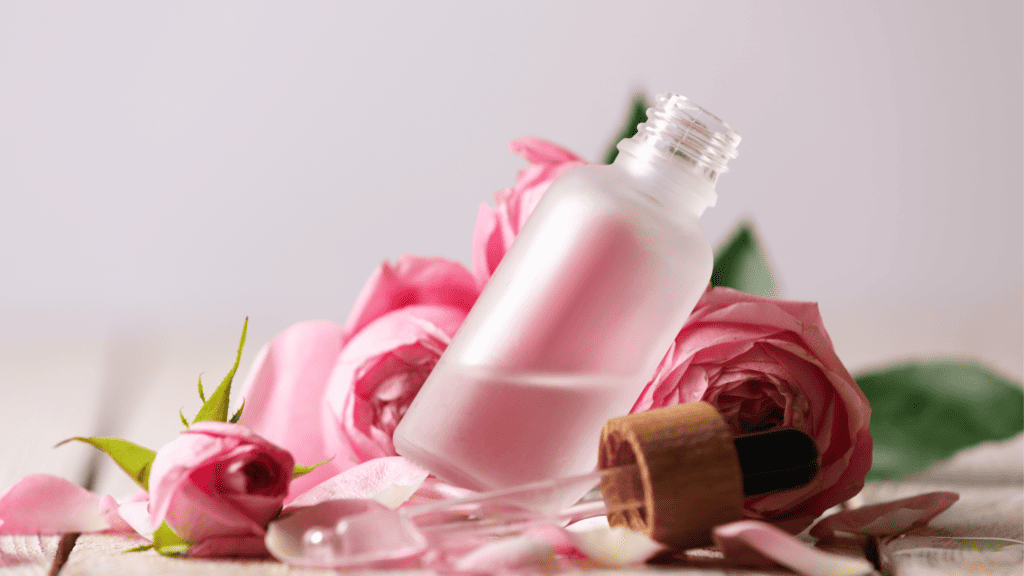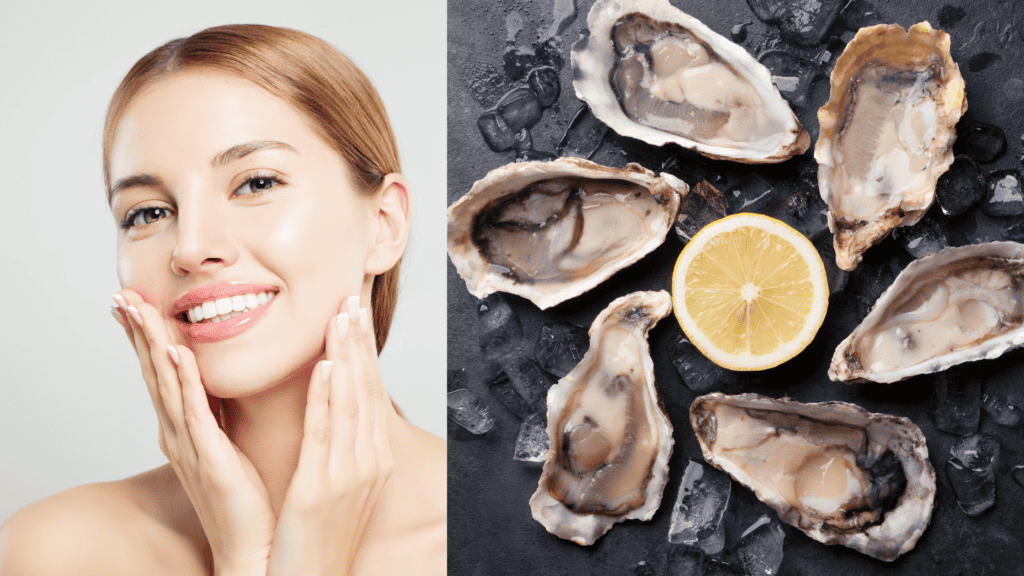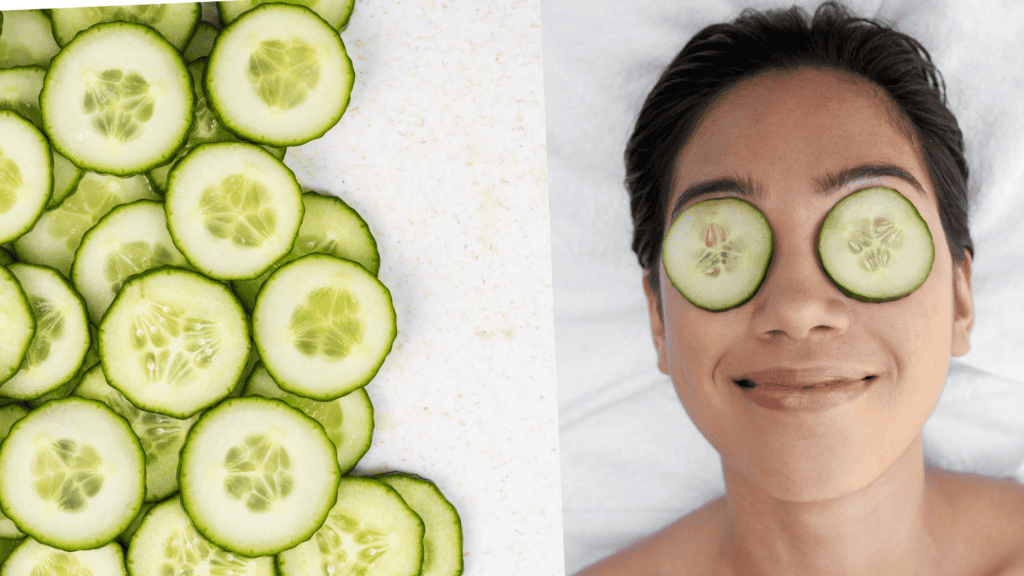Who doesn’t love rosewater? While it is often seen as old-fashioned, if you ever smell a well-formulated Rose perfume or the delicious scent of fresh rosewater, you will be swooning!
Roses have been used for centuries for their lush, seductive beauty properties. Rose oil is prized and expensive, and rosewater has been featured in ancient civilizations worldwide.
Rosewater is an incredible beauty ingredient with many uses. With natural remedies and homemade skincare solutions gaining popularity, one DIY trend has caught on: making rosewater at home.
However, before you rush to pluck those petals and fire up the stove, it’s crucial to understand the potential risks involved in making DIY rosewater. Why, however great a project this seems, you probably shouldn’t be doing it at home, with a few exceptions!
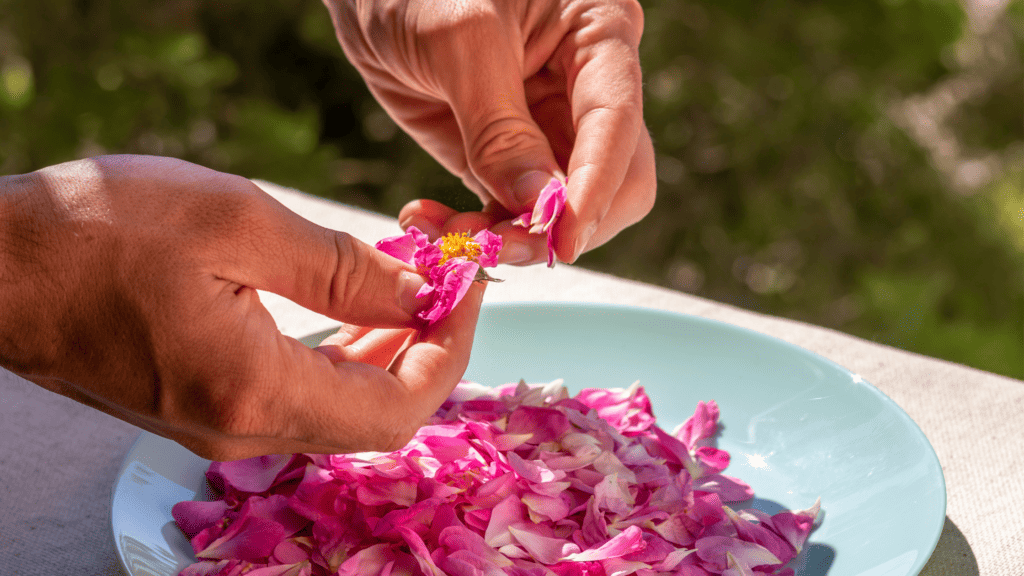
Why You Shouldn’t Make Rosewater Yourself!
You’ve watched TikTok and seen videos on YouTube or Pinterest, and yes, these videos get a lot of views, and you think, I’ll try that! Before you start, consider this: do you know where these roses come from, how they’re stored, or if they are preserved with some spray?
Roses from the stores often don’t smell that good anymore; they often don’t smell as fresh or intoxicating as they do in a garden. If these are the only roses you can access, making homemade rosewater is best for the professionals. Here’s why!
Contamination Concerns.
Homemade rosewater is susceptible to contamination from bacteria, fungi, and other microorganisms present on the petals or in the water used for the distillation process. Without proper sterilization techniques and equipment, there’s a risk of developing microbial growth that can lead to skin infections or allergic reactions upon application.
Chemical Residues.
Unless you’re growing your roses organically, store-bought roses may be treated with pesticides, herbicides, or other chemicals. These residues can leach into the water during distillation, resulting in a rosewater solution tainted with potentially harmful substances.
Inconsistent Quality.
Achieving rosewater’s desired concentration and purity can be challenging without precise measurements and control over the distillation process. DIY enthusiasts may end up with a product that varies in fragrance, potency, and effectiveness, making it unreliable for skincare or culinary purposes.
Short Shelf Life
Homemade rose water lacks the preservatives in commercially produced varieties, so it quickly goes sour. DIY rosewater may degrade quickly without proper storage conditions or additives to prolong its shelf life, losing its effectiveness and becoming a breeding ground for bacteria.
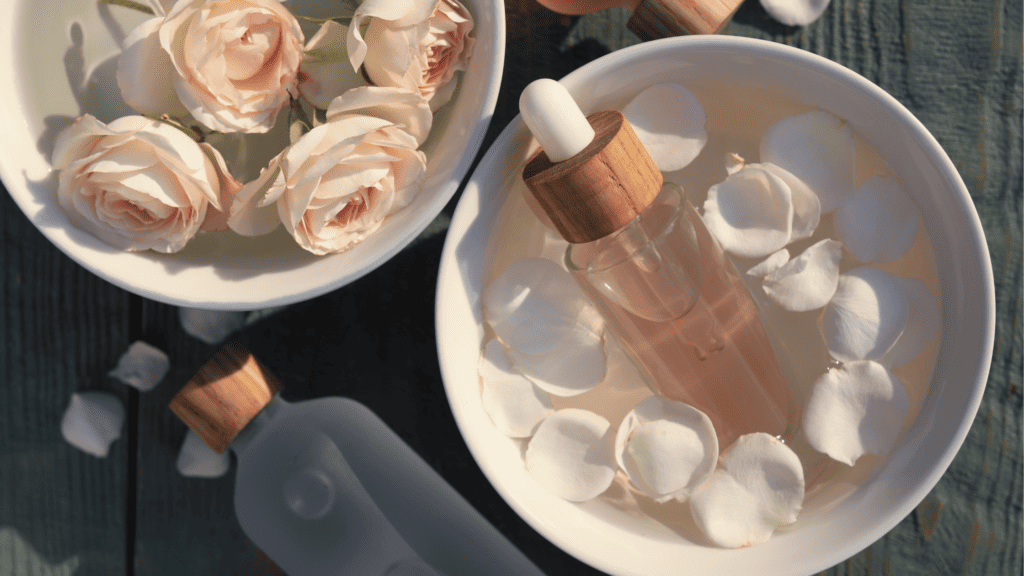
Safer Alternatives For Making Rosewater!
Rosewater for beauty is an incredible product; whether you mist it on your face or hair, put it in bathwater, or any number of other uses it has, it goes directly on your skin, is often sprayed over your mouth, and as such, you need to be careful with making it yourself.
Purchase from Reputable Brands.
Opting for commercially available rose water from trusted brands ensures product safety and quality control. There are so many organic or natural formulations without added preservatives or artificial fragrances for a purer product that you can buy.
Steam Distillation.
If you’re determined to make rose water at home, the best method is steam distillation rather than simmering the petals in water.
Steam distillation is the professional method for making rosewater. It extracts the essence of roses through gentle heat and steam, minimizing the risk of microbial contamination and chemical residue.
Use Organic Roses.
Accessing organically grown roses is your best bet for minimizing pesticide and chemical exposure in your homemade rosewater. Prioritize sourcing roses from reputable growers, or you can use ones you grow yourself if you have a pesticide-free garden!
Proper Storage.
Store-bought or homemade rosewater should be stored in airtight containers away from direct sunlight and moisture to extend its shelf life and prevent bacterial growth. While you don’t need to refrigerate store-bought rosewater, doing so keeps it fresh and cold and helps tighten the skin pores when you use it!
In conclusion,
While making fragrant homemade rose water seems like a fun project, the potential risks, and the resulting inferior product to those you can buy make it not necessarily worth it.
There are now so many beautiful, organic versions of rosewater to buy that it doesn’t make much sense to cobble together an inferior product!
When does it make sense to make homemade rosewater? Rosewater is a beautiful product, and if you want to rinse your hair with it, add it to bathwater, or make it for various DIY beauty recipes, then yes, if you have some organic petals or buy the dried version, it makes sense!
You can also decorate the bathwater with rose petals as Cleopatra did in her famous beauty rituals to give you rose-infused water!
But generally, go for one of the truly lovely products already made. The history of roses for beauty is fascinating; read more to see why roses are an incredible beauty ingredient and discover the best uses of rosewater!
This post uses affiliate links. If you purchase through these links, we may receive a small commission, which will not affect your sales.
Glowitgreen.com is a member of the Amazon affiliate program.
